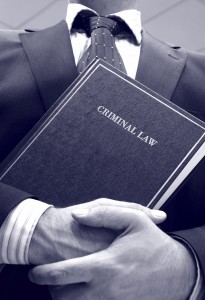Hearsay Statements by a Criminal Defendant
What is hearsay?
Hearsay statements are those comments that are made outside of a courtroom that are admitted to prove the truth of the matter that the statement asserts.
Example Let’s assume that a person tells the police that the getaway vehicle was blue. At trial if the witness testifies (or if the cop testifies) that the witness told the police that the getaway vehicle was blue, then this would be hearsay….so long as it’s purpose was to show that the car was in fact blue.
Implication of hearsay statements? As a general rule hearsay statements are not admissible during trial. However, the Defense can argue one of two things: (a) that the statement is not hearsay; that the statement is not being introduced to prove the truth of the matter it asserts, or (b) it is hearsay but it falls under an exception to the rules.
Not hearsay statements?
To argue that the out-of-court statement is not hearsay, you have to show that the statement is not being introduced to prove it’s truth. For example, in the blue-car hypothetical above, the statement would not technically be a hearsay statement if the attorney could convince the judge that the statement was not being introduced to show that the car was blue. For example, it could be introduced as impeachment. Let’s say the witness testified at trial that the car was green. Then the fact that she previously told the cops that the getaway car was blue could be used to impeach her testimony. As you can see, the statement is being introduced to show that the witness changed her story, not to show that the car was blue. There are a number of other examples and ways to show that a statement is not hearsay, but the general point remains the same= where the statement is not being introduced for its truth, it is allowed (so long as judge agrees).
Exceptions
There are a number of exceptions to the hearsay rules. The Rule makers felt that in certain instances an out-of-court statement is reliable and will allow these statements in under limited circumstances. There are quite a few exceptions but for today’s discussion we talk about this exception: “Hearsay Statements made by a criminal Defendant.” In certain contexts, hearsay statements made by a criminal defendant are admissible.
Hearsay Statements Made by a criminal Defendant:
These statements are allowed where: (1) admission by a party-opponent, or (2) the prosecution may wish to offer the statement to show the defendant made false representations to the authorities, from which the jury could infer a consciousness of guilt. **Note, only the first one is a hearsay exception, the second one is not considered hearsay at all so hence not an exception**
Admission by party-opponent: So for example, the prosecution can introduce hearsay statements made by the Defendant. E.g. the prosecution can introduce evidence that the Defendant confessed to the crime.
Defendant’s attempt to introduce out-of-court testimony: The Defendant is not allowed under the rules to introduce his own out-of-court statements. The Rules view this as self-serving hearsay, and clearly it doesn’t fall under the party-opponent exception. Therefore, the Defendant cannot introduce his own out-of-court statements. Morale of the story: Be careful who you talk to and what you say–> if the Defendant talks and it’s against him it’s allowed, but if the Defendant talks and it favors him it’s not allowed.
